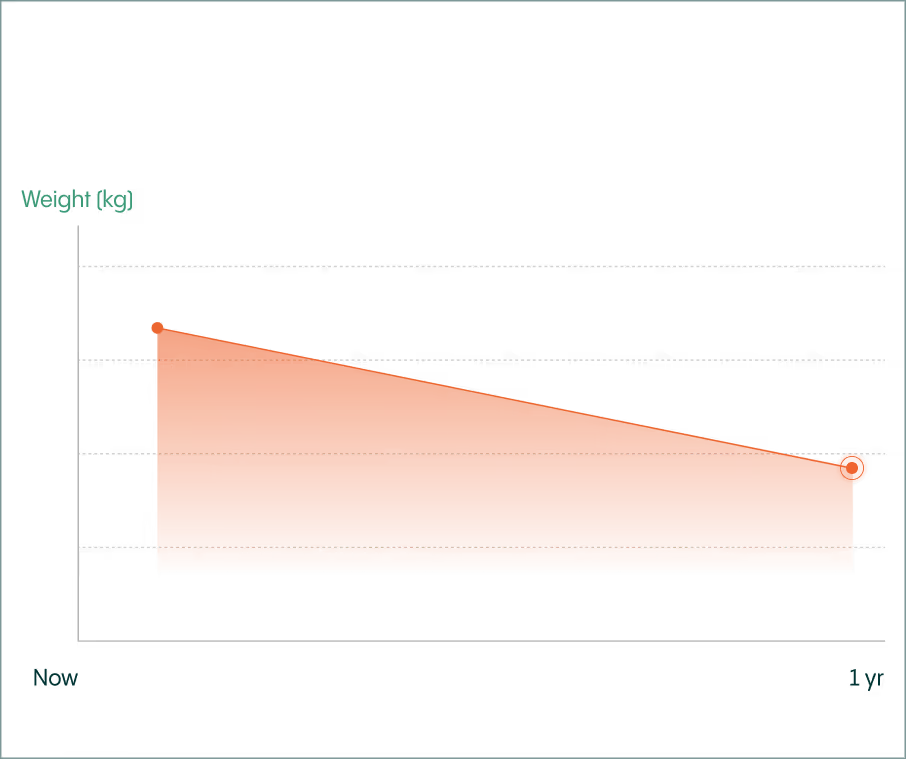

In this article, we will be explaining how obesity is diagnosed, the various health complications that can arise from obesity, and the various medical treatments available in Singapore to help you lose weight.

Obesity rates have exploded over the recent years and obesity has become a widespread health problem in many countries around the world. According to the World Health Organization (WHO), they have noted that rates of obesity worldwide have tripled since 1975.
While obesity is more prevalent in countries in Europe, North America and Oceania, obesity is becoming a worrying national health problem here in Singapore.
In a survey conducted by the Ministry Of Health (MOH) in 2017, it was revealed that the rate of individuals getting diagnosed with obesity has jumped from 32.5% to 40.1% between the years of 2004 to 2010. This survey also found that 13% of students were considered overweight.
Obesity is diagnosed by checking your BMI (Body Mass Index), which is an approximate calculation of your weight in relation to how tall you are.
The formula of calculating BMI is as follows:
BMI = Weight in kg ÷ (height x height [in meters])
As Asians are generally smaller, you should refer to these BMI categories to check whether you have obesity or are overweight:
Underweight = <18.5
Normal weight = 18.5–24.9
Overweight = 25–29.9
Obesity = BMI of 30 or greater
It is important to note that BMI is not an absolute measure of obesity. However, these calculations will be able to give your doctor good indication of your weight in relation to your height.
For more accurate measurement of your body fat ratio and body fat distribution, your doctor might used the following:
• Waist-to-hip comparison
• Skinfold thickness tests
• Tests like MRIs scans, CT scans and ultrasound scans
Unfortunately, weight gain isn't the only thing that can happen if you have obesity.
If left untreated, obesity can lead to serious health complications. Obesity can increase the inflammation you experience in your body, which in turn increases your risk of developing cancer. Obesity can also increase your risk of developing type-2 diabetes.
Here are a list of health complications that obesity has been linked to (some of which can be life-threatening):
• Heart disease
• High cholesterol
• High blood pressure
• Sleep apnea
• Infertility
• Stroke
• Breast, endometrial and colon cancer
Weight management is vital not just to improve your physical appearance, but to lower your risk of developing any of these health complications.
If you have obesity and struggle to lose weight by yourself, consider speaking to a doctor about the various medical treatments available to aid you on your weight loss journey.
Doctors can advise you on the lifestyle changes needed to help you achieve your goal weight, and help you to come up with a diet plan and exercise regime for you to do.
If they find that you are an appropriate candidate, doctors might recommend weight loss medication to help you get to your goal weight.
While they can help you lose weight, it is important that you do not expect weight loss medication to help you lose weight all by themselves. Weight loss medication is meant to be taken in tandem with changes to your lifestyle and diet (healthy diet, caloric restrictions and regular exercise) in order for them to work and help you to lose weight.
Here are a list of weight loss medication available in Singapore:
Phentermine belongs to a classification of drugs called anorectics (also known as appetite suppressants). Phentermine has been thought to reduce appetite by increasing the levels of neurotransmitters present in the brain.
Neurotransmitters are chemical messengers that transmit signals to other cells to regulate vital bodily functions such as breathing, heart rate and (more specifically) appetite. By increasing the levels of neurotransmitters like dopamine, serotonin and norepinephrine, you will find that your appetite wanes and decreases, helping you to eat less and lose weight.
Here at Noah, we carry Panbesy (whose main ingredient is phentermine) as part of our weight loss treatment. To learn more, check out our Panbesy 101 article!
Liraglutide belongs to a classification of drugs called glucagon-like peptide-1 (GLP-1) receptor agonist. By binding itself to receptors in the brain, liraglutide is able to inhibit glucagon secretion and stimulate insulin release. This then increases your feeling of fullness after eating and slows gastric emptying, both of which will help you eat less and lose weight.
Orlistat belongs to a classification of drugs called lipase inhibitors. They help you to lose weight by preventing the intestine from absorbing dietary fat into your bloodstream. When you take Orlistat along with a meal, about 25% of the dietary fat you consume does not get absorbed and is removed from your body through bowel movements.
Some studies have suggested that orlistat can help to reduce visceral fat, a type of belly fat. A high amount of visceral fat has been linked to increasing the risk of developing heart disease, high blood pressure, type 2 diabetes and stroke.
If you are currently struggling to lose weight in spite of dietary and lifestyle changes, it is advisable that you consult a doctor. Here at Noah, doctors on our platform are best equipped with the knowledge to determine whether Panbesy is suitable for you as part of your weight loss plan. They will be able to advise you on the best treatment suitable for you, and can also prescribe you the right medication should you need it.



Articles featured on Noah are for informational purposes only and should not be constituted as medical advice, diagnosis or treatment. If you have any medical questions or concerns, please talk to your healthcare provider. If you're looking for a healthcare provider, click here.